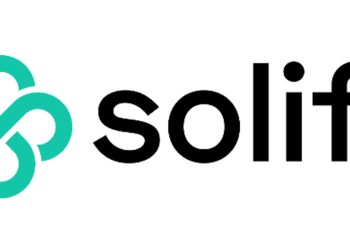From day-to-day operations to the very relationship between insurers and policyholders, it is no exaggeration to say that Artificial Intelligence (AI) represents the biggest potential for transformation that insurance has witnessed since the invention of the computer, even changing the very nature of the insurer-customer relationship. Insurance Nexus held a series of interviews with Canadian Insurance executives and thought leaders, to understand how they are preparing for the AI-dominated future of insurance and addressing the challenges and opportunities it will bring.
According to Dominic Fortin, Senior Director, Business Intelligence Solutions & Advanced Analytics, The Co-Operators, the “big, fundamental benefit of AI” is that it’s helping the industry move from reactive restitution towards proactive prevention. Rather than “reacting by analyzing past data, building predictive models able to learn based on past events” promises immense benefits to both insurers and customers; using live data to monitor risk and preventing losses from occurring, insurance carriers can now become partners in risk-prevention, rather than simply mitigating the effects of loss.
AI also promises better pricing and risk modeling, and as an industry build around quantifying risk, this is no small benefit to for insurance. Inka Bari, Associate Vice President, Analytics, Sun Life explains that “AI and Machine Learning are used to develop simulations or ‘what-if’ scenarios…to predict what will happen”, thereby enabling insurers to measure and quantify risk more accurately. The end result – more accurate premiums and claims pay-outs – will result in more resilient carriers in the long-term.
In this respect, executives expect that the claims function will see the greatest impact from AI; “by predicting upcoming events and helping customers preventing those”, explains Fortin, “the benefits are huge. Prevention is much less costly than paying for a claim after the fact,” not to mention less distressing to customers.
One caveat, however, is that implementing such transformational and often costly initiatives creates the potential to over-spend and under-deliver. This has itself prompted a culture change whereby innovation is highly sought after, while a fail-fast, iterative test-and-learn mentality is necessary. Bari explains that typical legacy insurance carriers are experiencing some “fear of evolving…to think and act differently”. This is hardly surprising since most roles within insurance have changed little over the past 100 years and many skills that enabled progression in the recent past are today redundant.
Coupled with the lack of available analytic talent, the need for insurers to evolve and harness the potential of AI is one that requires creative solutions. “While there is a rising number of university analytics and data science programs, they nonetheless can’t crank out enough sufficiently trained people to meet demand.” Although investing in university education is certainly an option, (and one that the Co-Operators have taken through their sponsorship of a research chair with the Université du Québec à Montréal), another solution, says Fortin, is to “educate your employees to raise their analytical skills. [Not through] small training once a year but a true curriculum with continuous education.”
Ultimately, it is those who embrace and adapt to change who will thrive in the age of AI-driven insurance. From basic processes to product-development, customer engagement, claims processing, risk modeling and employee acquisition and retention, the transformational potential of AI is vast, as is the potential to fail. Both interviewees featured here will expand on these topics at Insurance Nexus’ upcoming Fifth Annual Connected Insurance Canada Summit, taking place September 10-11, 2019, at the Toronto Marriott Downtown Eaton Centre Hotel.
Expecting over 350 senior attendees from across the insurance value chain, Connected Insurance Canada will provide two days of interactive sessions and real-world case studies, focusing exclusively on how to deliver enterprise-wide transformation, and how technologies such as IoT, AI, blockchain and automation can help create valuable, relevant insurance products and services, delivered with a seamless customer experience. For more information, please visit the website at https://events.insurancenexus.com/canada/ or just get in touch!
Ira





